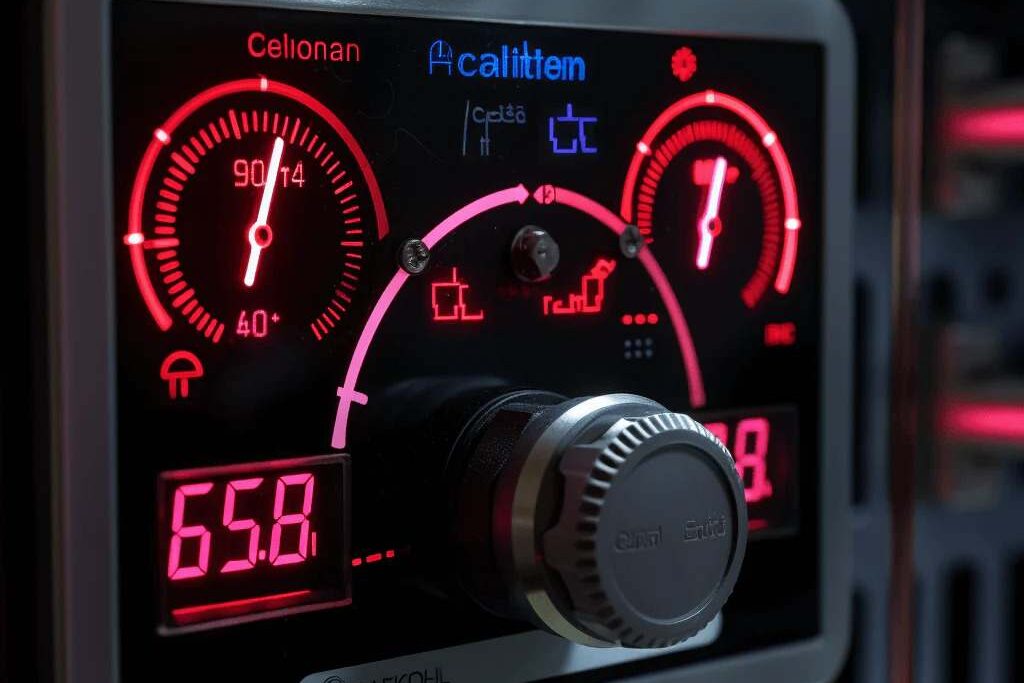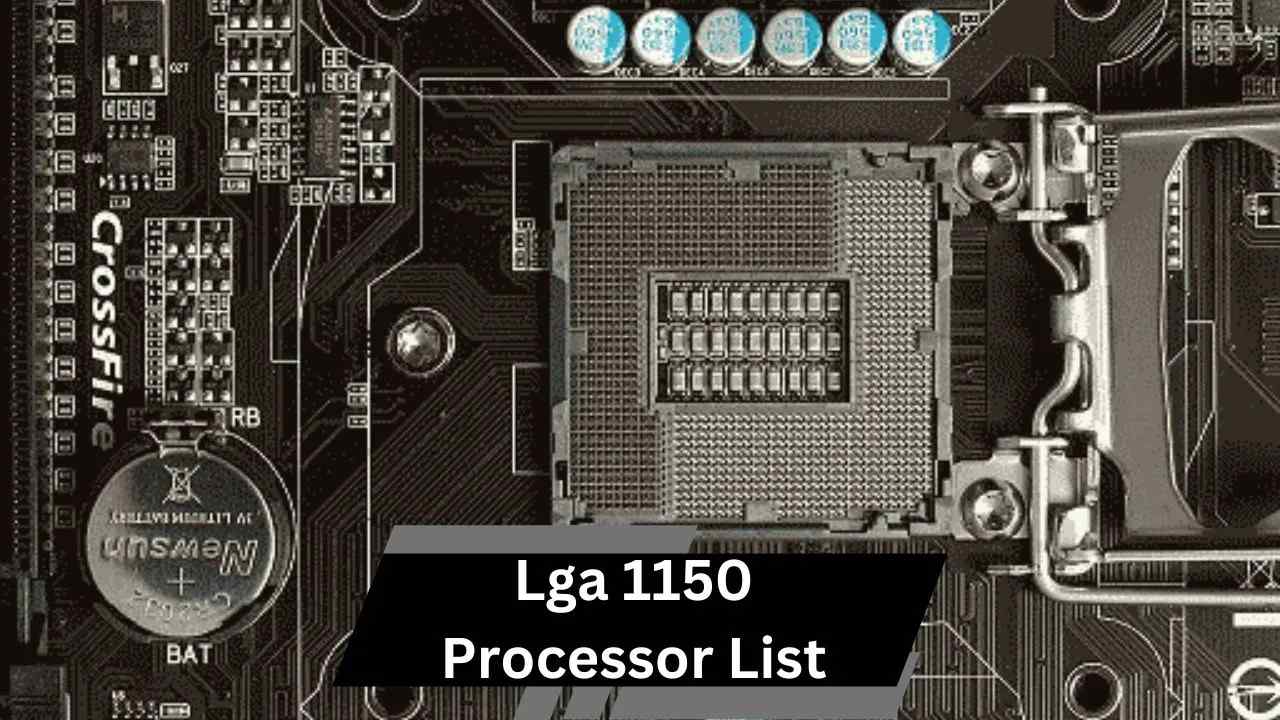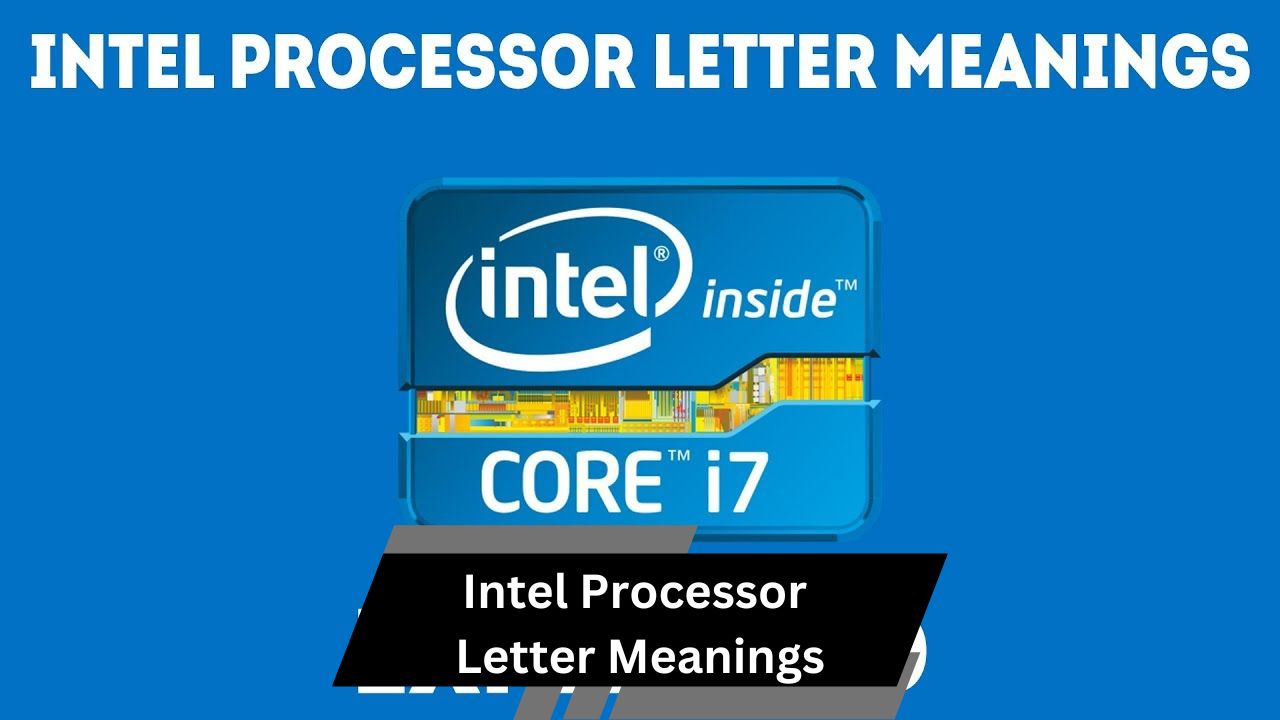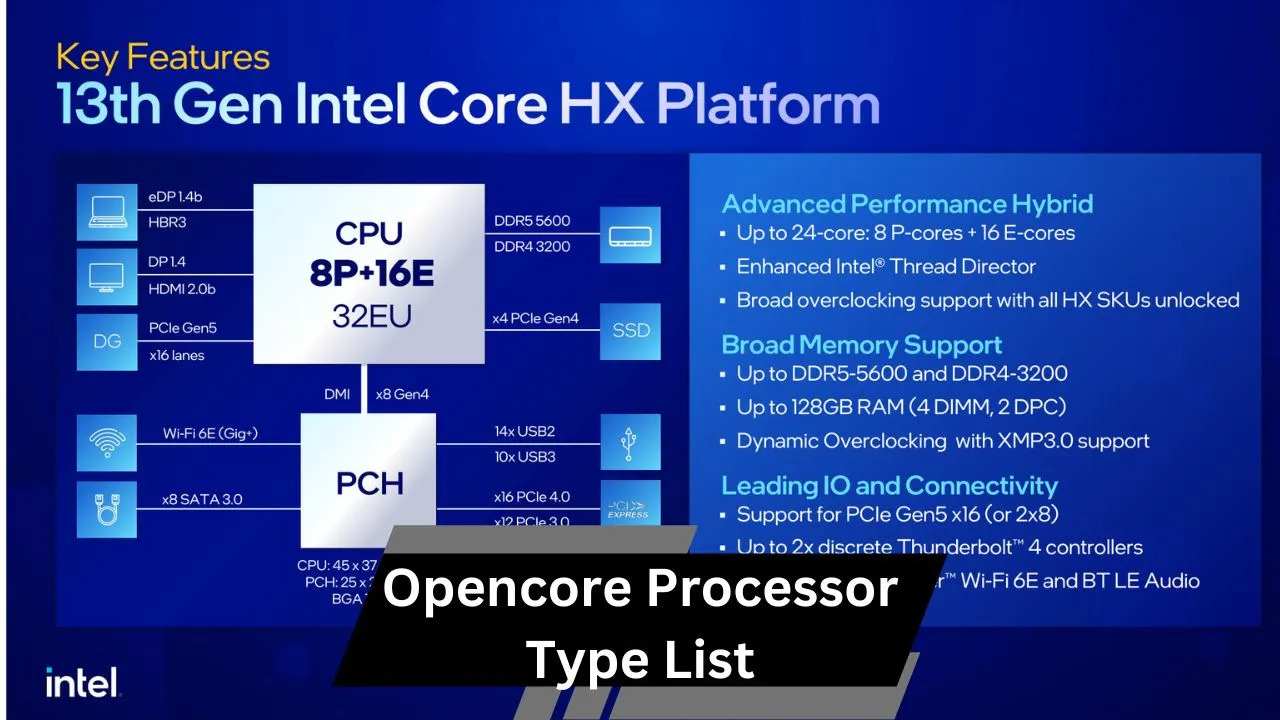The LGA 1150 socket, or Socket H3, supports Intel Haswell and Broadwell CPUs, balancing performance and affordability for gaming and content creation.
The LGA 1150 processor list includes Intel’s 4th and 5th generation chips from the Haswell and Broadwell families. Key models include the Intel Core i7-4790K, i5-4690K, i5-4460, i3-4150, and Pentium G3258. These processors offer solid performance for gaming, multitasking, and general productivity on desktop platforms.
The LGA 1150 processor list includes Intel’s 4th and 5th Gen CPUs, such as Core i7-4790K and Core i5-4690. Designed for efficiency and reliability, these processors cater to gaming, productivity, and multimedia tasks. Supporting DDR3 memory and advanced technologies, they remain popular for budget-friendly builds. Explore the list to find a processor that fits your needs.
Introduction to LGA 1150 Socket:
The LGA 1150 socket, also known as Socket H3, is a type of CPU socket developed by Intel. Introduced in 2013, it became a popular choice for mid-range and high-performance desktop computers. This socket is used by a range of Intel processors, mainly from the Haswell and Broadwell families, which are known for their good balance of performance, energy efficiency, and affordability.
What Is an LGA 1150 Processor:

An LGA 1150 processor is a type of Intel CPU designed to fit into the LGA 1150 socket on a motherboard. The “LGA” stands for “Land Grid Array,” which refers to the way the processor connects to the motherboard—through 1150 tiny metal pins. These processors are favored for their reliable performance and are commonly used in gaming, content creation, and everyday computing.
Why Choose an LGA 1150 Processor:
Choosing an LGA 1150 processor offers several benefits:
- Performance: LGA 1150 processors provide strong performance for gaming, video editing, and multitasking.
- Affordability: Many LGA 1150 processors are available at reasonable prices, making them a good choice for budget-conscious users.
- Compatibility: There is a wide selection of motherboards compatible with LGA 1150 processors, offering flexibility in building or upgrading your PC.
Overview of LGA 1150 Processors:
LGA 1150 processors are primarily divided into two main families: Haswell and Broadwell. Each family offers a range of options tailored to different needs and budgets.
Haswell Processors (4th Generation Intel Core):
Haswell processors were the first to use the LGA 1150 socket. They were released in 2013 and are known for their improved performance and power efficiency compared to previous generations.
- Intel Core i7-4790K: A powerful quad-core processor with hyper-threading, which means it can handle eight threads at once. It runs at a base speed of 4.0 GHz and can boost up to 4.4 GHz. This processor is ideal for gamers and professionals who need high performance.
- Intel Core i5-4690K: This quad-core processor does not have hyper-threading but offers excellent performance for gaming and general tasks. It runs at a base speed of 3.5 GHz and can boost up to 3.9 GHz.
- Intel Core i3-4150: A dual-core processor with hyper-threading, running at 3.5 GHz. It’s a good option for basic computing needs like web browsing, word processing, and light gaming.
- Intel Pentium G3258: A budget-friendly dual-core processor running at 3.2 GHz. It’s popular among overclockers because it can be pushed to higher speeds with proper cooling.
Broadwell Processors (5th Generation Intel Core):
Broadwell processors, released in 2014, are an evolution of the Haswell architecture, featuring a smaller 14nm manufacturing process. This makes them more power-efficient while offering similar or slightly improved performance.
- Intel Core i7-5775C: A quad-core processor with hyper-threading, running at 3.3 GHz and boosting up to 3.7 GHz. It also includes Intel Iris Pro Graphics 6200, which is good for users who need decent integrated graphics.
- Intel Core i5-5675C: Another quad-core processor, clocked at 3.1 GHz with a turbo boost up to 3.6 GHz. Like the i7-5775C, it also features Intel Iris Pro Graphics 6200, making it a good choice for users who want good integrated graphics without a separate graphics card.
Xeon Processors:
The LGA 1150 socket also supports certain Intel Xeon processors, which are typically used in workstations and servers. These processors are known for their stability and reliability, and they support ECC (Error-Correcting Code) memory, which is essential for preventing data corruption in critical applications.
- Intel Xeon E3-1270 v3: A quad-core processor with hyper-threading, running at 3.5 GHz base speed and boosting up to 3.9 GHz. It’s great for small business servers or workstations that need consistent performance.
- Intel Xeon E3-1245 v3: This processor also has four cores and hyper-threading, with a base speed of 3.4 GHz and a turbo boost up to 3.8 GHz. It includes integrated graphics, making it a versatile choice for both workstations and light server use.
Performance and Benchmarking:
LGA 1150 processors are known for their solid performance in a wide range of tasks. Whether you are gaming, creating content, or doing everyday computing, these processors can handle the job effectively.
Gaming Performance:
For gaming, the Intel Core i7-4790K and i5-4690K are standout choices. The i7-4790K, with its high clock speeds and hyper-threading, is particularly popular among gamers who want smooth gameplay and fast response times. The i5-4690K is also highly regarded for its gaming performance, offering great value for those who do not require hyper-threading.
Content Creation and Multitasking:
If you’re into video editing, 3D rendering, or other demanding tasks, the i7-4790K and i7-5775C are excellent options. Their multiple cores and threads make them capable of handling complex workloads efficiently. The Broadwell processors, with their enhanced power efficiency, are also a good choice for those who want a balance of performance and lower energy consumption.
Also read: Cpu are Measurements used to Compare Performance between Processors – A Comprehensive Guide!
Everyday Computing:
For general use, such as browsing the web, streaming videos, or using office applications, the i3-4150 and Pentium G3258 are sufficient. They provide reliable performance for everyday tasks without breaking the bank.
Compatibility and Motherboards:
When building or upgrading a PC with an LGA 1150 processor, choosing the right motherboard is crucial. LGA 1150 processors are compatible with motherboards featuring the Intel 8 and 9 series chipsets. These include:
- H81: Basic features, suitable for budget builds and everyday computing.
- B85: A step up from H81, offering more connectivity options.
- H87 and H97: Mid-range motherboards with additional features like more USB ports and SATA connections, suitable for more advanced users.
- Z87 and Z97: High-end motherboards designed for enthusiasts, with support for overclocking and advanced features like multiple GPU setups and enhanced power delivery.
Choosing the Right Motherboard:
When selecting a motherboard, consider factors like your budget, the features you need, and whether you plan to overclock your processor. For example, if you want to overclock, you should opt for a Z87 or Z97 motherboard, which offers the necessary controls and settings.
Overclocking Potential:
One of the advantages of many LGA 1150 processors is their ability to be overclocked. Overclocking means increasing the processor’s speed beyond its factory settings to boost performance. This is especially popular with the “K” series processors, such as the i7-4790K and i5-4690K.
How to Overclock:
To overclock an LGA 1150 processor, you need a compatible motherboard (usually one with a Z-series chipset), a good cooling solution, and a stable power supply. Overclocking can significantly improve performance, especially in gaming and intensive tasks, but it also generates more heat, so proper cooling is essential.
Benefits and Risks of Overclocking:
Overclocking can provide noticeable performance gains, making your system faster and more responsive. However, it also comes with risks, such as increased power consumption, higher temperatures, and the potential for system instability if not done correctly. It’s important to proceed carefully and ensure you have adequate cooling and a reliable power supply.
Power Efficiency and Thermal Management:
LGA 1150 processors are designed to be power-efficient, particularly the Broadwell models. These processors consume less power than earlier generations, which can help reduce electricity costs and extend the life of your components.
Cooling Solutions:
Proper cooling is vital for maintaining the performance and longevity of your processor, especially if you plan to overclock. There are several cooling options available:
- Air Coolers: Affordable and easy to install, air coolers are sufficient for most LGA 1150 processors.
- Liquid Coolers: More expensive and complex, but they offer better cooling performance, making them ideal for overclocking or high-performance setups.
Maintaining Optimal Temperatures:

To keep your LGA 1150 processor running smoothly, it’s important to monitor its temperature regularly. Software tools like Intel’s Extreme Tuning Utility (XTU) can help you keep an eye on your CPU’s temperature and adjust settings to prevent overheating.
Future-Proofing and Upgrade Paths:
While the LGA 1150 socket is no longer the latest standard, it remains a viable option for many users. If you already have an LGA 1150 setup, upgrading to a higher-end processor within this socket can extend the life of your system without the need for a complete overhaul.
Upgrading Your System:
For those who are happy with their current LGA 1150 system but want a bit more performance, upgrading to a processor like the i7-4790K or i7-5775C can provide a significant boost. However, if you’re building a new system, you may want to consider newer platforms that support modern technologies like DDR4 or DDR5 RAM, PCIe 4.0 or 5.0, and more advanced CPUs.
Longevity of LGA 1150 Systems:
LGA 1150 systems can still deliver excellent performance for many tasks, and with the right upgrades, they can remain useful for several more years. However, it’s important to consider the advancements in technology and the potential need for future upgrades when deciding whether to stick with LGA 1150 or move to a newer platform.
FAQ’s:
1. What is an LGA 1150 processor?
An LGA 1150 processor is a type of Intel CPU designed for the LGA 1150 socket, used in desktops for tasks ranging from gaming to general computing.
2. Which Intel processor families are compatible with the LGA 1150 socket?
The LGA 1150 socket is compatible with Intel’s Haswell (4th generation) and Broadwell (5th generation) processor families.
3. Can you overclock LGA 1150 processors?
Yes, many LGA 1150 processors, especially the “K” series, can be overclocked for improved performance.
4. What motherboards support LGA 1150 processors?
LGA 1150 processors are supported by Intel 8 and 9 series motherboards, including models like H81, B85, H87, H97, Z87, and Z97.
5. Is LGA 1150 still a good option for building a new PC?
LGA 1150 is a good option for budget builds or upgrading an existing system, but newer platforms offer more advanced features and future-proofing.
Conclusion:
The LGA 1150 socket offers a range of processors that cater to different needs, from budget-friendly options for everyday use to high-performance models for gaming and content creation. While it’s an older platform, it still holds up well in many scenarios, making it a good choice for those looking to build or upgrade a PC on a budget.




